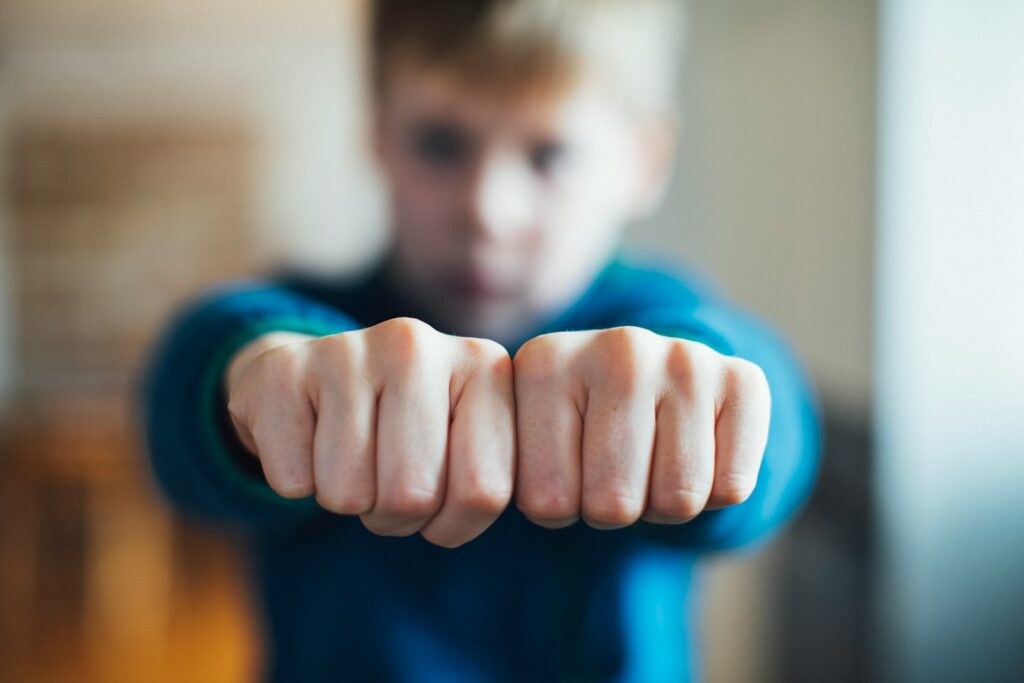Teaching kids self-defense doesn’t just make them safer; it gives them a toolkit of skills that will shape their courage, emotional health, and mindset for years ahead. As concerns over bullying, unsafe encounters, and personal boundaries grow today, self-defense stands out as a crucial investment in helping children grow up strong, self-assured, and prepared. How Self-Defense Boosts Confidence When children take self-defense classes, they learn much more than just physical moves. They grow a belief in themselves because they know they have ways to protect themselves if needed. This kind of self-assurance changes how children handle new settings, bullies, or even just meeting new people. Kids who feel capable have less anxiety and can participate more freely in classes, sports, and play, knowing they’re not helpless. By gaining these abilities, children see that they can face tough situations. Classes commonly also feature lessons on following their instincts and drawing their own boundaries. Having this knowledge helps kids spot unsafe moments before they happen and shows them that it’s okay to say no or leave if something feels wrong. Awareness: The Foundation of Staying Safe Self-defense isn’t just about throws and punches; at its heart is teaching kids how to be more aware of what’s going on around them. Through training, they learn how to spot trouble and how to react before things go wrong. Simple habits, like looking for exits or checking who’s nearby, make a big difference. Most programs make sure kids also learn how to use their voices to set limits, ask for help, or walk away. These practical communication skills help children manage conflicts peacefully most of the time, and they only rely on gentle physical techniques if absolutely needed. Moving the Body: Fitness from Learning to Defend The fun, active parts of self-defense give children a good foundation of physical fitness. As they repeat drills for escaping grabs, blocking hits, or performing basic strikes, they build up muscle, balance, and flexibility without even realizing it. These drills develop discipline, too; practicing them over time sharpens their focus and ability to work toward long-term goals. With regular practice, keeping active becomes a habit instead of a chore. The skills children learn carry over into other sports or daily life, helping them grow strong while having fun. Decision-Making and Thinking on Their Feet Kids won’t just remember how to do a move—they will also learn to judge when and how to act in different situations. Self-defense naturally encourages children to quickly size up problems, think calmly under pressure, and choose what’s best to do in the moment. These decision-making skills matter not just for handling emergencies, but for making smart choices in friendships, disagreements, and life in general. Additionally, good programs stress using these new skills in a safe, sensible way. Children hear reminders that defending themselves isn’t about using power aggressively, but about safety and self-control. This message helps bring out their sense of right and wrong as they decide how to react. Handling Emotions and Building Social Skills Great self-defense training always covers how emotions show up in scary or pressured moments. Kids learn tips on staying calm, even when faced with tough feelings such as fear or anger. Knowing a range of ways to respond gives them tools for managing stress outside the classroom as well. A confident child is more likely to reach out and make friends. The self-respect and trust children gain from training means they’ll get along better with classmates and family members, take part in new activities, and even help others feel safe. Altogether, self-defense lessons foster kids’ sense of being part of a caring community. Practical Know-How That Lasts Many groups and teachers now design their programs to be realistic and useful in the situations children might actually face. Techniques might include how to use school supplies or nearby objects for safety, when it’s smart to speak loudly, and how to look for safe adults. Programs like those at various organizations teach both the physical skills of escaping danger and the mental skills of recognizing warning signs. Most instructors believe strongly in a balanced blend: physical moves, mental awareness, and lifting children’s confidence to use everything learned wisely. These lessons are made for all children, no matter their abilities or backgrounds, so every kid can benefit in their own way. A Step That Sets Children Up for Success Giving children the opportunity to learn self-defense is a gift with long-lasting benefits. It’s about more than just learning to defend against harm. Through regular classes and knowledgeable teachers, kids gain focus, confidence, cope better with drama or bullies, and become thoughtful about how they react to people and danger. Students leave not just stronger and braver, but also smarter in how they handle whatever life puts in front of them. When parents or schools make self-defense part of growing up, they give children one more way to stand tall, stay protected, and face up to the world around them—whatever challenges come along. Choosing the right training is key; trustworthy programs gently introduce skills and blend them with sound advice so all children grow not only safer, but kinder and more capable people ready for anything.
